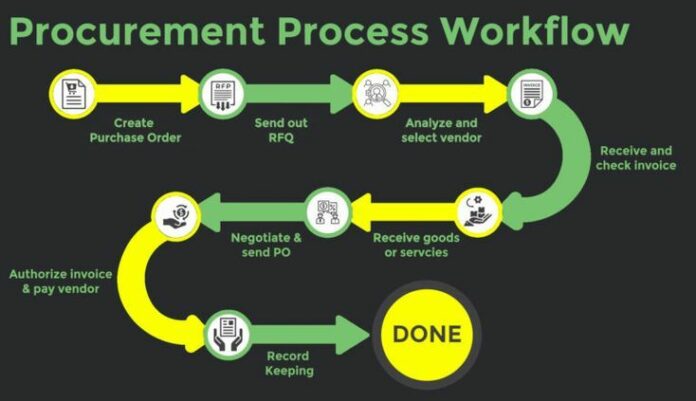Business procurement is the process of acquiring goods and services from external sources for use within an organization. It involves the selection of suppliers, negotiation of contracts, and the management of the supply chain. It is a critical part of any business and is essential for ensuring that the organization is able to obtain the best value for its money.
Overview of Business Procurement
Business procurement is a complex process that involves a variety of activities. It begins with the identification of a need for goods or services and the selection of a supplier that can meet those needs. The supplier is then evaluated based on their ability to provide quality goods and services at a competitive price. Once a supplier is selected, the organization will negotiate a contract with them and manage the supply chain to ensure that the goods and services are delivered on time and at the agreed upon price.
Benefits of Business Procurement
Business procurement offers a variety of benefits to organizations. It allows them to access a larger selection of goods and services, as well as competitive pricing. It also helps to ensure that the organization is able to obtain the best value for its money. Additionally, it helps to reduce costs by streamlining the procurement process and eliminating the need for multiple vendors.
Challenges of Business Procurement
Despite the many benefits of business procurement, there are also some challenges that organizations face. One of the most significant challenges is the complexity of the process. It requires a significant amount of time and effort to identify suppliers, evaluate them, and negotiate contracts. Additionally, it can be difficult to manage the supply chain and ensure that the goods and services are delivered on time and at the agreed upon price.
Best Practices for Business Procurement
To ensure that the business procurement process is successful, organizations should follow a few best practices. The first is to develop a clear procurement strategy that outlines the organization’s goals and objectives. This should include a list of suppliers that can meet the organization’s needs, as well as criteria for evaluating them. Additionally, organizations should establish clear policies and procedures for managing the procurement process and monitoring the performance of suppliers.
Technology in Business Procurement
Technology has had a major impact on the business procurement process. Organizations are now able to use software to automate many of the tasks associated with procurement, such as supplier selection and contract negotiation. Additionally, technology has enabled organizations to access a larger selection of suppliers and to quickly compare prices and terms. Finally, technology has allowed organizations to better monitor the performance of suppliers and manage the supply chain.
Risk Management in Business Procurement
Business procurement involves a certain amount of risk. Organizations should therefore take steps to manage those risks. This includes conducting due diligence on potential suppliers, establishing clear policies and procedures for managing the procurement process, and monitoring the performance of suppliers. Additionally, organizations should consider implementing measures to mitigate risks, such as insurance, contractual clauses, and performance guarantees.
You might find these FREE courses useful
- Top Program Procurement Planning With Clickup
- Top Global Public Procurement Courses
- Top Procurement Courses – Learn Procurement Online
- Top Procurement Basics Courses
- Procurement Basics
- Strategic Procurement and Sourcing Conclusions
The Future of Business Procurement
The business procurement process is constantly evolving. In the future, organizations can expect to see the continued adoption of technology, such as artificial intelligence and blockchain, to further streamline the process. Additionally, there will likely be an increased focus on sustainability and ethical sourcing, as organizations strive to reduce their environmental impact and ensure that suppliers adhere to ethical standards. Finally, there will likely be an increased emphasis on risk management and the use of data to gain insights into the performance of suppliers.
